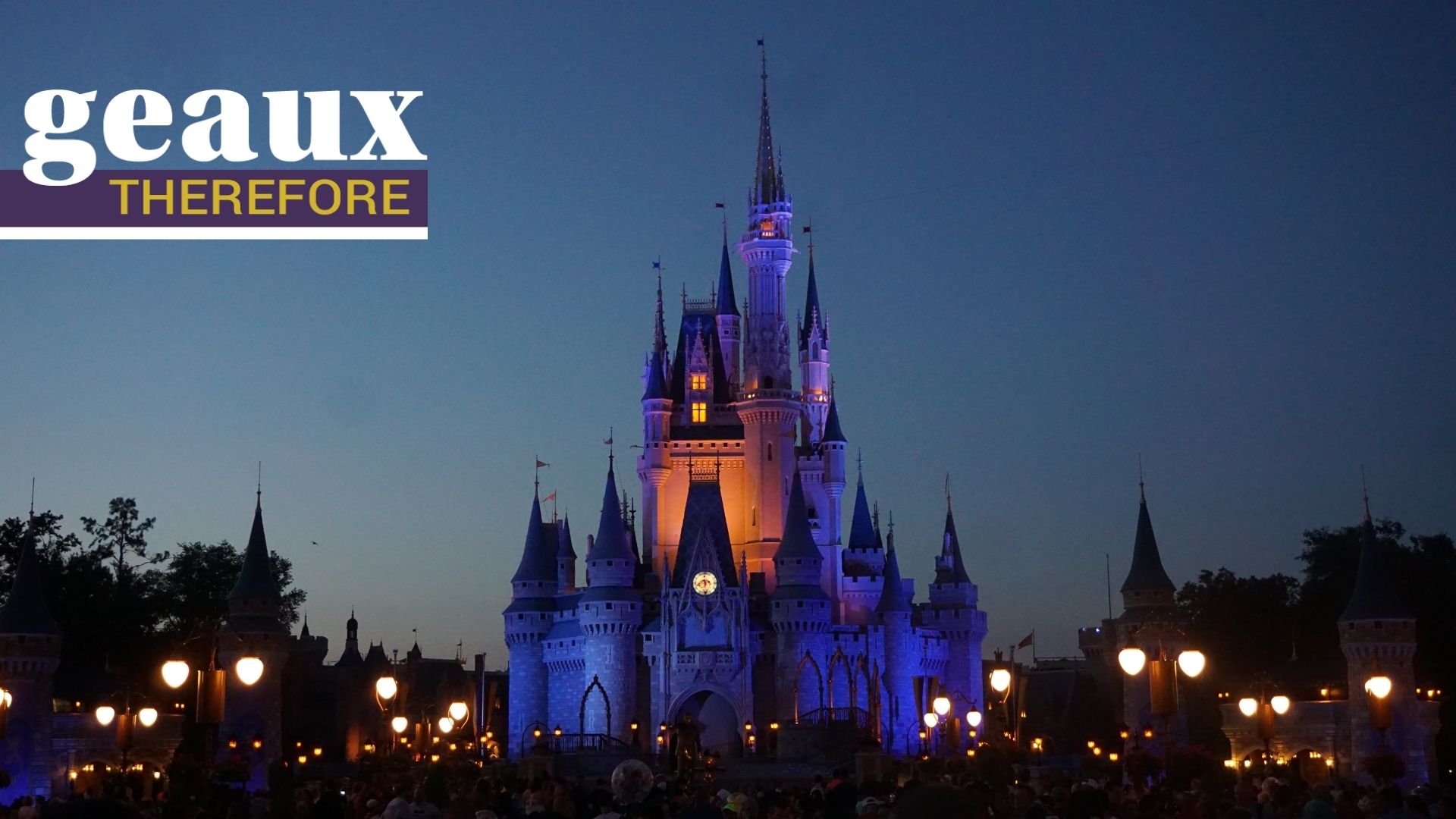
Graeme Wood, in an article in The Atlantic last summer, tells of his trip to Disney World as COVID restrictions first began to ease. There, happy, spell-bound visitors eagerly obeyed all restrictions.
Disney provided the backdrop for Wood’s commentary on life in a pandemic.
Still, his take on why fans rushed to return is interesting. People came back with almost a religious fervor, Wood explained, believing it offered “something worth risking their life for.”[i]
“Disney is a religion and going to Disney World a pilgrimage,” he decided.
Wood mistook religion with what more aptly is called worldview, but his definition of “religion” is important to note: “It is the base layer of our imagination and consists of stories and ideas so deeply imprinted on our minds that we do not realize that our realities are formed by them.”[ii]
James Sire, philosopher and authority on worldview, explains worldview this way:
A worldview is a commitment, a fundamental orientation of the heart, that can be expressed as a story or in a set of presuppositions … about the basic constitution of reality, and that provides the foundation on which we live and move and have our being.[iii]
Wood was right on one point though. Imagination and life-directing beliefs are intertwined because, as another author notes, imagination is the human “capacity to apprehend meaning.”[iv]
Imagination is worth understanding.
BREAD IN A TIME OF ‘FAMINE’
Wood met a couple with “crucifix tattoos” at Disney on a Sunday he believed were Christians and -- perhaps with some poetic license and assumption -- wrote this:
… if you ask them about love, they will tell you about Beauty and the Beast. If you ask them about growing old, they will tell you about Up. If you want to know about overcoming adversity, they will ask if you have heard the good news about Aladdin. If enough of your imagination consists of stories like these, authored by (or filtered through) the Disney corporation, then what else is Disney World—where these narratives are ubiquitous and glorified—but a place to nourish your soul in a time of famine?[v]
“Famine” is an interesting choice of word. As I read it, Wood is referring to COVID, but famine could describe today’s culture, steeped in secularism and starving.
What if that connection we feel to Disney is how its stories tap into the human heart’s longing for beauty, that longing for joy that drew C. S. Lewis to Christ? What if imagination is key to leading today’s culture to Living Water and the Bread of Life?
Justin Ariel Bailey, theologian and author, said this:
… imagination is one of the most basic (and best!) things about being human … For when we engage the imagination in apologetics, we are entertaining what is beautiful, extending the boundaries of what is imaginable, and exploring what is possible. [vi]
Imagination allows one to consider a new way and discover the beauty of Christ.
AN INVITATION TO ‘WHAT IF?’
Bailey writes of an incident his wife experienced at work. A coworker questioned her as to why the couple would “indoctrinate” their children with their religious views. The question exposed the woman’s secular understanding of faith as restrictive and confining.
Here’s how it played out:
“That's not really the way faith works for us,” [Bailey’s wife] said. “For us, faith is the most liberating thing we have ever experienced. We feel like it is this amazing gift that we get to pass on to our children.” [vii]
What a fabulous response. She offered a “What if …” type of response that invited the coworker to consider faith differently: “What if faith can actually set you free? What if the open space that you are looking for can actually be found in living with faith?”[viii]
This is a great lesson for believers. “The Christian faith does not simply, or even mainly, propose a few additional facts about the world. Rather, belief in the Christian God invites a new way to understand everything.”[ix]
In other words, a new worldview.[x]
The Magic Kingdom has countless fans. But God gave us the gift of imagination to help us show others a “deeper magic,” as C. S. Lewis put it, where joy is real and everlasting.
Marilyn Stewart is assistant director of news and information, NOBTS Communications.
[i] Graeme Wood, “I Went to Disney,” The Atlantic. https://www.theatlantic.com/culture/archive/2020/07/disney-world-during-pandemic-extremely-weird/614617/ Accessed May 6, 2020.
[ii] Ibid.
[iii] James W. Sire, The Universe Next Door: A Basic Worldview Catalog (Downers Grove: IVP Academic, fourth ed., 2004), 17.
[iv] Andrew Davison, ed. Imaginative Apologetics: Theology, Philosophy and the Catholic Tradition (Grand Rapids: Baker Publishing Group, 2011), 59.
[vi] Justin Bailey Ariel, “Exercising the Imagination: Why we need imaginative apologetics,” in Worldview Bulletin Newsletter, Nov. 27, 2020. https://worldviewbulletin.substack.com/p/exercising-the-imagination-why-we Accessed May 6, 2020.
[vii] Bailey, Imaginative Apologetics at Work.
[viii] Ibid.
[ix] Davison, xxv.
[x] Romans 12:2 And do not be conformed to this world, but be transformed by the renewing of your mind.